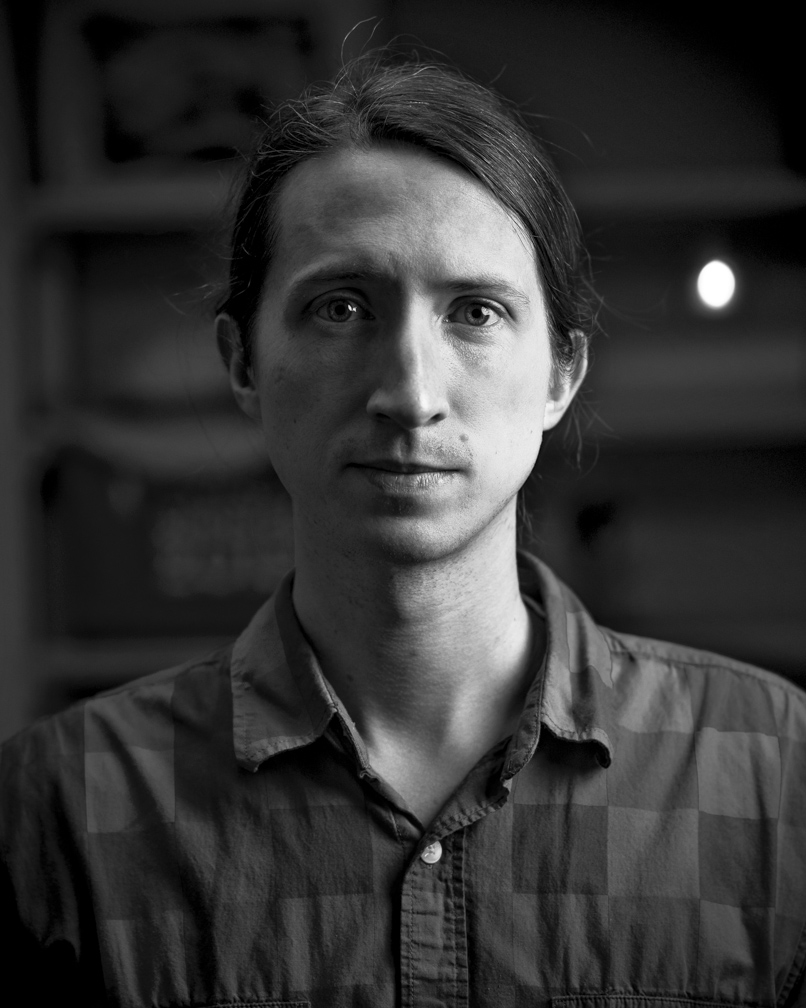Travis Truax
Nebraska:
Four Phases of the Oregon Trail
I. Rock Creek Station
You walk the rutted path of pioneers, families who carried their lives across the plains.
They stopped here: Rock Creek. A way station, post office, a toll bridge.
You grieve with an emigrant’s song. You imagine the Pony Express. You imagine Bill Hickok, killing his first man just over the hill from the barn. The horses. Oxen. Hay stacks. You hear the bustle of a working road ranch, men drunk beneath prairie stars, and the soft approach of the next wagon crawling over buffalo grass.
West.
West is the direction of loss, but you are standing still.
The world this land holds doesn’t rust, wear, or smear.
The plowed land cracks like a father’s smile and floods like love when the distant rains come.
What’s gone? What’s still going?
II. The Platte
You say it—like it’s been said before—“A mile wide and an inch deep.”
Also: “Too thick to drink, too thin to plow.”
Then, a dozen cranes startle from the brush and rush to the clouds.
A northern wind brings cold. You walk a bridge, staring at the river. You are here. You are there. The whole prairie opens to the heart of the Platte, lost pioneers and the diaries of water, sand, and grass.
Is this not cause for celebration? You have made it this far. The Platte, running east against Nebraska, scours the weaving willow banks. Mountain water braids and unbraids the plains.
You have cause to be glad, you do, that this river is not all gone. That the few clouds above are waving blue flags. You have come, finding home. You have come, leaving home.
And you have come knowing loss opened up this land.
You say: A whole continent’s loss collects in the smallest heart’s communion.
You say: Loss brought you here.
III. Chimney Rock
This space, full of September, is the Nebraska of books, of pioneers: land so open you are both lost and found, both gone and here. You are somehow both then and now. Roads, grey with age and sun, carve long lines across prairie grass, long lines back: east along the deep lanes of where you’ve been. The land welcomes your past, trailed along behind you.
You can’t believe the sky, its salience, its blue, its move-along resolve. The movement of each slant of sunlight means: the land is a crackling gasp, alive with grass and grouse, bluestem and time. Your wagon is a messy repository of the past.
And you love the past. You love the land’s past. You love your own past. You carry it a long, long ways.
Nebraska land. Sweet Nebraska land. You stand above its burning soil, now all gravel, grass, and echo. You stand among the cries of pioneers.
A cemetery, below the shadow of Chimney Rock:
Mary Murray Murdoch
Born Scotland Oct. 13, 1782
Died near Chimney Rock, Neb. Oct. 2, 1856
“Tell John,” Mary wrote, “I died with my face toward Zion.”
You believe her. You believe the wind. You believe the tears.
Blood is still on the land. Footsteps, too. And the wagon ruts you walk mean: someone made it this far, someone moved against odds with hope. You are alive in their wake.
IV. Scotts Bluff
At Scotts Bluff you are welcomed by a band of rock and sky.
The land splits and rises, opening on a soft slant toward the mountains. And you see what you have done. You see the past, sliding east. You see the dust.
Your world is a quiet place, softened by grass and the long sighs of mothers.
From the top, you know: Your patient trek through the country’s soft middle is nearly done, and now the mountains. Mountains to die for. Mountains to curse. You can see them, vague backbones, blue dots in the distance.
Your path is a path of wagon ruts and heart. Your path is a blind crawl across the high plains. Your path is a path of backward glances, distress, and grass.
Unfamiliar land is the basis for both imagination and fear.
Scotts Bluff. Crown Rock, Dome Rock, Eagle Rock, Saddle Rock.
You are a third of the way there. Barely anywhere. A third of your life is done. Hardly gone.
The first third of the trail is a gift, and now, the mountains.
 Travis earned his bachelor’s degree in English from Southeastern Oklahoma State University in 2010. His work has appeared in or is forthcoming from Flyover Country, The Eastern Iowa Review, The Marathon Literary Review, The Flagler Review, and The Meadow. After college he spent several years working in various national parks out west. He lives in Bozeman, Montana.
Travis earned his bachelor’s degree in English from Southeastern Oklahoma State University in 2010. His work has appeared in or is forthcoming from Flyover Country, The Eastern Iowa Review, The Marathon Literary Review, The Flagler Review, and The Meadow. After college he spent several years working in various national parks out west. He lives in Bozeman, Montana.